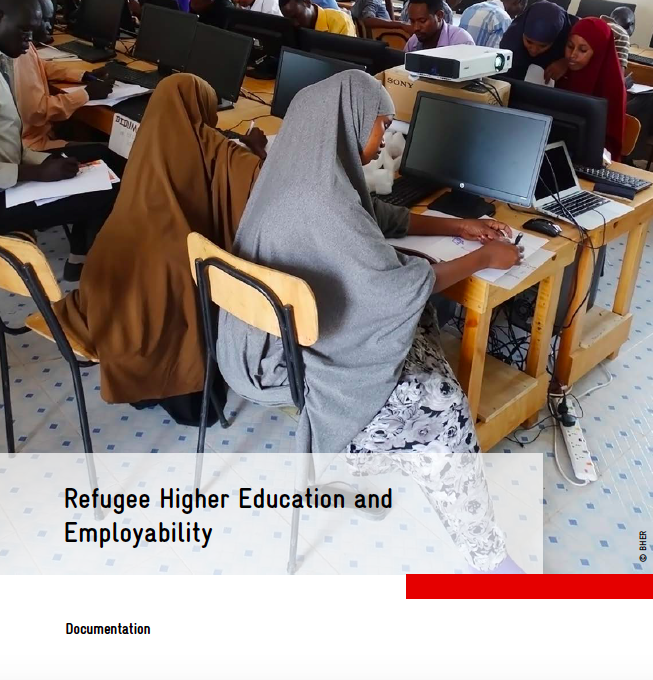
The report can be downloaded at the bottom of this page.
Jigsaw was asked by GIZ to undertake this study, which involved a review of relevant programmes, interviews with key stakeholders, and the facilitation of a workshop at Mobile Learning Week 2017 in Paris held in partnership with GIZ, Kepler, Kiron and JOSY.
The report focuses on three analytical themes that provide different lenses for considering the issue of employability within refugee higher education: overcoming barriers to labour market integration, collaboration with employers, and curriculum design for employability.
The diverse operating contexts of the different higher education programmes mean that there is no universally applicable strategy for overcoming legal barriers for refugee students. This section of the report considers legal barriers and the right-to-work for refugees in different contexts and how various higher education programmes are engaging with them. It focuses on how programmes can help graduates overcome legal barriers to workplace integration by building particular skill-sets within their curriculum, and engages with the way entrepreneurship and remote working can be used as strategies for circumventing the barriers faced.
Collaborating with potential employers during the design of refugee higher education programmes can lead to pathways to employment for students following graduation. This section considers the way in which programmes can promote mentorship and internships, often with potential employers, so that students can acquire skills directly applicable to the workplace. It also engages with the sustainability and scalability of collaborations between higher education programmes and potential employers, noting that despite the various pilot programmes there are thus far very few instances of lasting initiatives operating at significant scale.
Regarding curriculum design for employability, the report explores the different pedagogical approaches and course designs within technology-enabled higher education programmes and the ways in which these can be tailored for future employability. It emphasises the importance of widespread stakeholder engagement in course design, adopting a demand-driven approach that reflects the aspirations of both students and employers. This section also highlights the need to embed the development of soft skills and personal formation within higher education programmes, emphasising the positive impact these may have on employability, especially within a context of significant uncertainty regarding student futures.
In closing, the report highlights five cross-cutting issues for further consideration:
- All decisions and dialogue regarding refugee higher education and employability should be situated within an understanding that refugees have multiple possible employment futures and programmes should be designed accordingly.
- There is validity to programmes having varied approaches and motivations regarding the link between higher education and employment, and it is crucial to engage in clear expectation setting with students regarding this.
- There is significant difficulty in collaborating with potential private sector employers at significant scale.
- Technical Vocational Education and Training (TVET) is an under-explored area for refugee higher education and higher education that is effective for employment should recognise the importance of TVET.
- There is a lack of understanding regarding the long-term impact of higher education on refugee employability and there is a clear need to address this and build a systematic evidence base to inform good practice.

